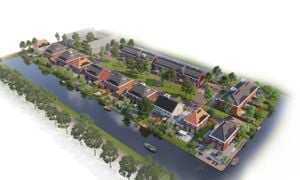KUALA LUMPUR/PENANG – Amidst the vibrant cities of Malaysia, expatriates and refugees alike share their tales of adapting to new lives, leaving behind their old realities for the promise of more peaceful or fulfilling futures. For Lauren Dai, hailing from Shanghai, her relocation to Malaysia was marked by the desire for tranquility after years of coping with the relentless pace of life entrenched within China.
Living since 2019 within Kuala Lumpur’s Mont Kiara, Ms. Dai takes to social media to share snippets of her culinary experiences, demonstrating local dishes such as teh tarik and mee goreng. She describes her new life as liberatory: "My last 20 years in fast-paced Shanghai and Hong Kong have been exhausting," she told The Straits Times. "But in Malaysia, WhatsApp doesn’t invade my personal life; I can take breaks during my holidays."
Her story is reflective of the larger trend motivating many Chinese individuals to obtain the Malaysia My Second Home (MM2H) visa, which allows for long-term residency. By the end of 2024, approximately 26,162 mainland Chinese had embraced this opportunity, making up 45 percent of the scheme’s total participants. This influx is not merely about seeking leisure; many view Malaysia as a safer educational environment for their children, distancing them from the overly competitive nature of China’s academic system.
"Those who can afford it are concerned about their children becoming blue-collar workers,” explained Anthony Liew, president of the MM2H Consultants Association. On the ground, property agents like Lisa Chan have noted dramatic shifts; 80 percent of her clients are now mainland Chinese people seeking homes for retirement or education, up significantly from previous years.
Yet, this rapid influx has not been without challenges. Language barriers and cultural clashes have emerged. For example, many international schools are placing limits on mainland Chinese student enrollments, fostering diversity and avoiding the risk of creating homogenous environments. Property rents have surged as demand has intensified, causing friction with local residents.
Meanwhile, Hannah Ho's move back to the UK from Hong Kong showcases another dimension of returning home. Having moved to the dynamic city at the age of 23, she built her career and life there over seven years, only to feel the weight of change post-pandemic, with friends departing and the vibrancy of city life dwindling.
“I realized the version of Hong Kong I had fallen in love with was gone,” Ho shared, recalling the feelings of isolation and nostalgia. Returning to Liverpool, her old home, presented its own set of hurdles; familial ties and familiar landscapes had evolved during her absence. The movement back stirred feelings of disconnection as she struggled to rebuild her professional network from scratch.
Adjusting to life back home has had its upsides, though. Spending quality time with family and enjoying the slower pace of British work culture has rekindled her sense of connection. "I can drop by for home-cooked meals and just talk about life," she remarked, noting the comforts often taken for granted.
Yuliya Danilina's experience of displacement is starkly different yet equally poignant. A Ukrainian refugee, she escaped to England with her daughter just as the war erupted. The trauma of leaving behind her home weighed heavily on her, leading her to seek purpose through dog sitting.
Her return trip to Ukraine revealed the devastating impacts of war; her village lay significantly altered, but the community's resilience shone through. "When I arrived, I’d never loved it so much," Yuliya recalled. Despite the tears and heartache, the warmth of returning felt nourishing, even amid tragedy. Reconnecting with neighbors and friends offered her solace and the courage to remain connected with her roots.
Reflections on living through conflict have transformed her outlook on life—an acceptance of impermanence and appreciation for small moments of joy. She now contributes to rebuilding efforts within Ukraine, driven by hope and the belief of eventual recovery.
These narratives spotlight the diverse experiences of expats seeking new beginnings, whether fleeing desperation or searching for peace. From immigration challenges to cultural reconciliations, the journeys these individuals undertake paint a vivid picture of adaptation and resilience. No matter their origin, the shared human experience of seeking belonging transcends borders and challenges.



